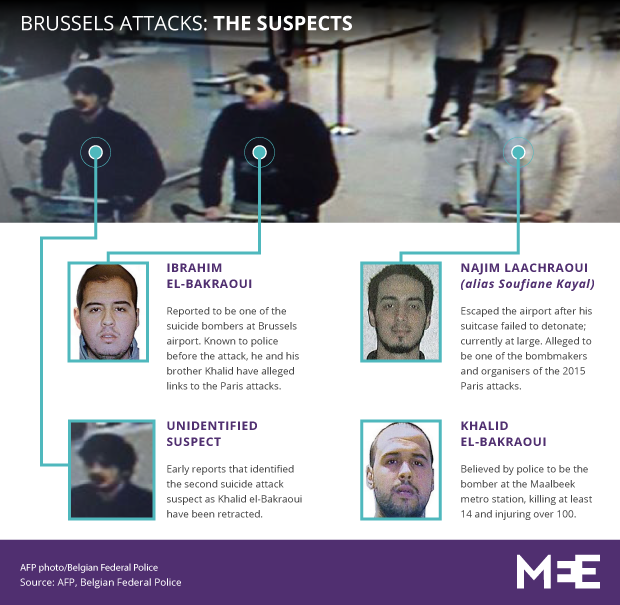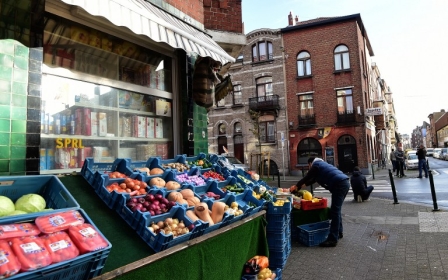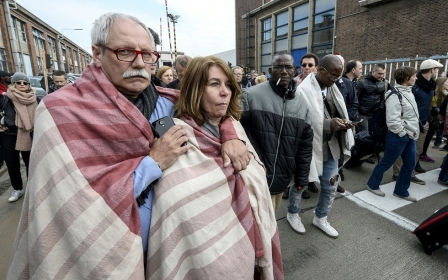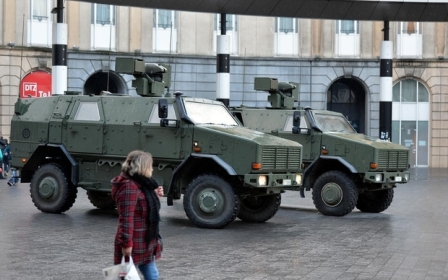Suspect still at large as brothers named as Brussels bombers
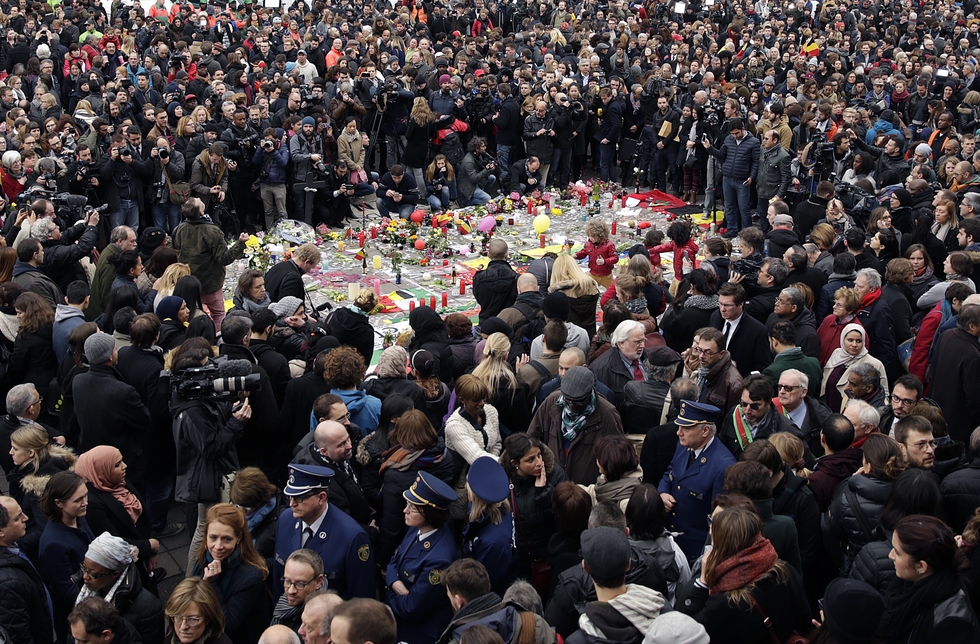
Police on Wednesday were hunting a fourth suspect over Tuesday's deadly attacks in Brussels, after prosecutors said that two brothers had been killed carrying out separate suicide attacks at a metro station and airport in the Belgian capital.
Khalid el-Bakraoui blew himself up at the Maalbeek metro station on Tuesday morning, shortly after his brother Ibrahim detonated explosives at Zaventem airport, prosecutors said.
European security officials confirmed that the third suicide bomber is Najim Laachraoui, a Moroccan-born Belgian citizen suspected of building the bombs used in the Paris attacks on 13 November.
A fourth man, believed to be the third suicide bomber at the airport, has not yet been identified.
"The third man is on the run," prosecutor Frederic Van Leeuw said of a man seen on CCTV pushing a trolley through Zaventem alongside the two suicide bombers.
"He left his bag with the biggest bomb in it which exploded later because it was so unstable," Van Leeuw said, adding that police had found a large stash of explosives in a Brussels apartment.
Belgian media earlier on Wednesday reported the arrest of Laachraoui but these reports proved false.
Laachraoui, 24 and a Brussels resident, is thought to be well-known to police as a key recruiter of young people hoping to fight in Syria.
His apparent accomplices on Tuesday, the Bakraoui brothers, both died in the attacks which killed 31 and injured hundreds.
Belgian reports said the brothers, identified as Belgian citizens, were known to police and linked to Salah Abdeslam, a key Paris attack suspect who was arrested last week in Brussels.
Khalid el-Bakraoui last week rented a flat in Brussels under a false name where police found Abdeslam's fingerprints after a raid.
He is also linked to a rented apartment in the southern Belgian city of Charleroi, from where Abdeslam and the other Brussels-based Islamic State (IS) militants set off to carry out the 13 November Paris attacks which left 130 people dead.
Turkish authorities have also claimed that they detained and later deported one of the individuals behind the attacks in June 2015.
"One of the Brussels attackers was detained in Gaziantep (in southern Turkey close to the Syrian border) and then deported" to Belgium, President Recep Tayyip Erdogan told reporters in Ankara.
He said the Belgian authorities had failed to confirm the suspect's links to terrorism "despite our warnings" following his deportation.
The developments came as Belgium continued three days of mourning for the victims. A minute's silence on Wednesday was held for the victims.
The fact that the bombers were able to hit high-profile targets in the capital of the European Union, just months after IS militants killed 130 people in Paris and days after Abdeslam was arrested in Brussels after four months on the run, will raise fresh questions about the continent's ability to prevent terrorism.
"This is a day of tragedy, a black day," Prime Minister Charles Michel said, vowing the country would not be cowed by the "deadliest attacks we have ever seen in Belgium".
"People were just going to work, to school and they have been cut down by the most extreme barbarity," Michel said. "We will continue to protect liberty, our way of life."
Late on Tuesday, IS claimed the bombings, saying "soldiers of the caliphate" had carried out the attacks against "the crusader state" of Belgium.
Pierre Meys, a spokesman for the Brussels fire brigade, told AFP at least 14 people had been killed at the airport, while Brussels mayor Yvan Mayeur said "about 20" died in the metro.
The first to be identified was Adelma Marina Tapia Ruiz, a Peruvian woman who had been living in Brussels for six years and was with her family in the airport when the blast went off, according to the foreign ministry.
More than 200 people were wounded in the two attacks, including four Mormon missionaries - three Americans and one French - two Britons, two Colombians and an Ecuadorian.
France said eight of its nationals were hurt, though it was unclear if this included the Mormon missionary.
Middle East Eye propose une couverture et une analyse indépendantes et incomparables du Moyen-Orient, de l’Afrique du Nord et d’autres régions du monde. Pour en savoir plus sur la reprise de ce contenu et les frais qui s’appliquent, veuillez remplir ce formulaire [en anglais]. Pour en savoir plus sur MEE, cliquez ici [en anglais].


